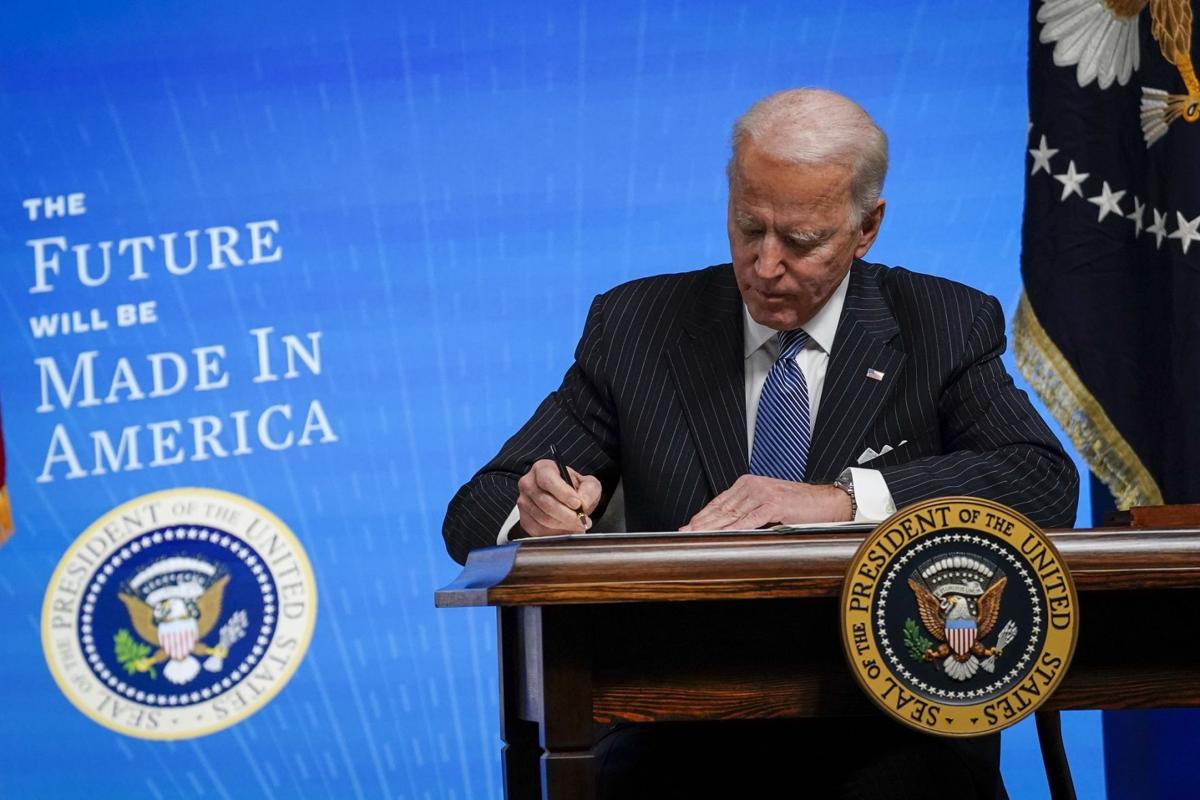
What Company Renewal of Market Capitalization in a US International Political Slump Means
News broke early this year that Apple's market capitalization had exceeded $3 trillion. That's about 300 trillion yen, or about three times the size of Japan's annual national budget expenditure (excluding special accounts).
The fiscal system is different, so it is not possible to make a simple comparison, but the fiscal expenditure in 2022 in the United States will be $6 trillion (about 684 trillion yen).
Not only Apple, but also Google, Amazon, Microsoft, Tesla and other big information technology companies in the United States are at the top of market capitalization.
On the other hand, when it comes to international politics, the overall influence of the United States is declining, especially following the withdrawal from Afghanistan last year.
The American economy and American business are doing well, but America’s political influence is declining. (Of course, the impact of COVID-19 on the domestic economy and the issue of inequality is big, but since this paper focuses on international politics and economy, I will leave that aside for the moment.)
This report considers how the divergence of the United States’ economic and political influence will affect the international community and how we should act.
The Global Impact of the Attack on the Capitol
Let’s examine the factors behind the decline of the United States influence on international politics, starting with the most recent events.
First, there is the fallout from the attack on the Capitol last year, which left a huge stain on the country's standing as a flag bearer for democracy and cast a shadow over its influence.
On Jan. 5, The New York Times published a major editorial by experts who say that the attack is leading to a loss of influence in the international community.
The fact that many Republicans still believe the presidential election was fraudulent despite the horrific assault is one reason why America’s reputation as a standard bearer for democracy is in question. Japanese people find this opinion difficult to understand as they are unfamiliar with election fraud.
To begin with, elections in the U.S. are not as fair as the world thinks. Of course, there are almost no voting irregularities, such as manipulation of the vote count itself, although there are some who (still) point out problems. However, there are many cases — mostly in Republican-majority state governments — where changes in the voting process, such as voting hours and voter registration, have effectively made it more difficult for Black citizens and other minorities to vote.
Frequently changing the voting process to benefit one's own political party creates the image that the election itself is fraudulent.
The United States was the first country to elect its head of state by popular vote after independence. However, it has also given the world the impression that even in a democracy, it is possible for riots to take place in an effort to violently overturn the results of an election.
Double Standards: Soft on Friendly Nations, Hard on Foes
Secondly, although the aforementioned giant IT companies still influence the economy and business, they are facing increasing criticism over issues such as the protection of personal information, which makes it difficult for them to increase their impact on international politics.
The world's top market capitalization companies include American IT companies and IT-related companies, except for Saudi Aramco and Taiwan Semiconductor Manufacturing Corporation. The giant IT companies that originated in the United States have formed many platforms and are making huge profits. It can even be said that the IT sector is not a shadow of its former self; rather, its power is growing.
However, as the business influence of large IT companies increases, various problems such as personal information protection, fake news and pressure on trading companies by use of superior positions have emerged, which does not necessarily work in a positive way with regard to American influence on international politics. Rather, its giant IT companies have become the target of criticism.
Third, America’s influence on and involvement with reducing carbon emissions, along with other global issues, is not as great as that of the European Union.
After taking office, President Joe Biden rejoined the Paris Agreement on climate. However, in the United States, where the oil industry, including shale gas, has a relatively strong influence, efforts to decarbonize are lagging behind European Union countries. The amount of environmental, social and governance investment in the U.S. also lags behind the European Union in various analyses.
In the area of human rights, which is a matter of international concern, there has long been a recognizable double standard. In other words, the U.S. is tough on countries that are hostile to it, while it is lenient with its allies. The Unites States government's lax response to the murder of Saudi journalist Jamal Khashoggi is a typical example.
In other words, the United States lacks the persuasive power to truly lead on global issues, whether it is global environmental issues such as decarbonization or human rights.
In addition to the above factors, I would also like to reiterate that historically, the United States has been a country that is oriented toward independent action and isolationism.
United States Military Operations Unsuccessful Where It Counts
For a long time, the United States has distanced itself from conflicts in Europe and other parts of the world under the Monroe Doctrine.
The founding of the United States was originally triggered by the migration to the New World of people who fled religious wars and other conflicts in European countries. The origins of the United States itself are rooted in isolationism and unilateralism, not intervening in other countries' struggles for supremacy or in their conflicts.
This changed with Japan's attack on Pearl Harbor, bringing the U.S. into World War II, and with subsequent rise of the Soviet Union in the Cold War. Shocked by the Japanese attack, the United States could no longer ignore the struggle for supremacy and armed conflict in the world. It came to believe that the Soviet Union's possession of nuclear weapons, for example, would have a direct negative impact on the security of the United States.
However, it is difficult to say that the Vietnam War, the Iraq War and the anti-Taliban war in Afghanistan, from which the United States withdrew last year, were successful. Although the Iraq War succeeded in overthrowing the regime of Sadam Hussein, it resulted in the rise of terrorists such as the international terrorist organization al-Qaida and the extremist Islamic State.
Although the United States seems to be the world's dominant power, in fact, its military operations often suffer defeat or failure where it counts.
Looking at the United States, it is highly likely that last year's withdrawal from Afghanistan will be a symbol of any return to independent action. The policy of reducing involvement in the Middle East has been consistent since the Obama administration, regardless of whether the Democratic Party or the Republican Party are in control.
Given all this, let’s consider the direction in which we’re heading and how we should respond.
The EU as a Model for International Politics
First, the United States could move toward adhering to a 21st-century Monroe Doctrine.
Of course, in the 21st century, with greatly advanced globalization, there cannot be the kind of isolationism that existed before World War II. Naturally, the United States will participate in frameworks such as the United Nations, the Group of 20 and the Group of Seven, and exert its influence there.
It is also certain that the United States will take tough steps against China in response to the new Cold War. On the other hand, China will also increase its global influence in terms of economy, business and politics, but the coercive nature of the Chinese government, including human rights violations against the Uyghurs, cannot be a model for international society.
Second, the influence of the European Union will increase as a model for international politics.
The European Union does not have large information technology companies with global influence, and it has been rocked by immigration issues. However, the European Union as a whole has a larger population than the United States, and its gross domestic product and economic power are comparable to the United States. The European Union has also been proactive on climate change issues, including the introduction of a border carbon tax. The European Union has also been active in introducing renewable energy.
Germany, the core of the European Union, has long been limited in exerting international political influence due to its sense of atonement for World War II. After nearly 80 years, however, that need has diminished.
Since the Treaty of Westphalia in the 17th century, European countries have always been at the center of international politics, except after World War II. In the 21st century, the influence of the United States and Europe in international politics may change.


